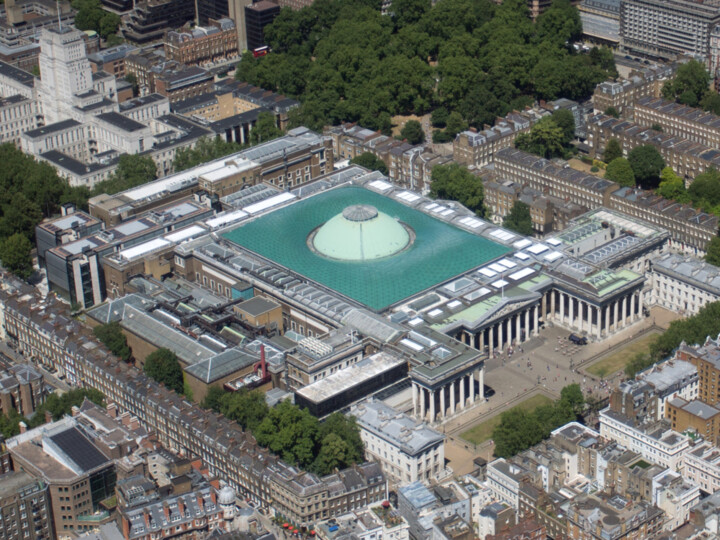 Aerial shot of the British Museum, London, credit : Luke Massey & the Greater London National Park City Initiative
Aerial shot of the British Museum, London, credit : Luke Massey & the Greater London National Park City Initiative
Peter John Higgs, a veteran curator with a thirty-year tenure at the British Museum, has been revealed as the central figure in a case involving lost, stolen, and damaged artifacts from the museum's collection, as reported by the Times of London and the Daily Telegraph.
Higgs, known for his expertise in Greek antiquities, is alleged to have engaged in unauthorized activities leading to the disappearance and damage of select items. The suspicions point to him covertly appropriating items that were not properly cataloged and subsequently selling them on the popular online marketplace eBay. Interestingly, traces of such listings date back to as early as 2016, according to sources cited by the Daily Telegraph.
The British Museum, in an official press statement issued on August 16, revealed that the majority of the missing, stolen, and damaged items pertained to small but significant artifacts, specifically "gold jewellery and gems of semi-precious stones and glass dating from the 15th century BC to the 19th century." These pieces, primarily retained for academic and research purposes rather than public display, had not been showcased recently.
Higgs' association with the British Museum began in 1993, stemming from his deep-rooted childhood fascination with the institution. He ascended the ranks to become the head of the Greece and Rome department before his dismissal earlier this year. Notably, he was entrusted with the curation of the widely acclaimed 2021 exhibition "Ancient Greeks: Athletes, Warriors and Heroes," which successfully toured several Australian museums and is scheduled to conclude at the Suzhou Museum in China later this year.
The Daily Telegraph's report disclosed that an unnamed expert in antiquities had alerted the museum to the illicit activities three years prior. The timing of the revelation coincided with the forthcoming departure of the museum's director, Hartwig Fischer.
The report further detailed that while some of Higgs' earlier sales had not been meticulously documented by the museum, other pieces were subjected to a comprehensive digital inventory, enabling investigators to trace them back to him. Although Higgs employed a pseudonym for his eBay transactions, his real identity was inadvertently revealed through a connection between his PayPal account and his public Twitter profile.
Strikingly, Higgs had previously showcased his expertise in identifying ancient artifacts, as demonstrated when he assisted UK customs officials in recognizing a Greek goddess statue seized at Heathrow Airport in 2013. This artifact, a rare funerary statue, was subsequently repatriated to Libya in 2021.
At present, no arrests have been made in connection with the ongoing investigation into the missing items. However, the British Museum intends to pursue legal action against the former staff member, and the Metropolitan Police's Economic Crime Command has initiated a parallel inquiry.
The museum's press release additionally announced an independent review of its security protocols, a move that has raised pertinent questions about the safeguarding of other contentious items within its expansive collection.
Art Recovery International, a UK-based law firm specializing in restitution and repatriation cases, voiced concerns on X (formerly known as Twitter), suggesting that the safety of renowned pieces like the Parthenon Marbles might be compromised in the UK. They proposed relocation to a museum in Athens for enhanced care.
Experts have expressed apprehensions that the missing, stolen, and damaged items might have been subjected to destructive measures, such as melting down or recutting, possibly for resale abroad. Christopher Marinello, CEO of Art Recovery International, pointed out that the time elapsed since the thefts severely hampers the prospects of recovery, particularly as "unsophisticated" criminals tend to focus on quick monetary gains, often leading to the destruction of the pilfered artwork.
A note of irony punctuates the situation, given Higgs' past contributions to the museum's efforts in identifying rare pieces. Nonetheless, the revelation underscores the importance of vigilance and robust security measures in safeguarding invaluable cultural heritage.


 Jean Dubreil
Jean Dubreil